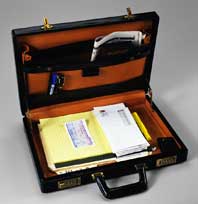The role of the security director is changing, writes Simon Gawne, Director Integrated Solutions and Innovation, at Tyco.
For as long as security has been a professional occupation, the aim of the security director has been to guard the perimeter, identifying and expelling the dangers that threaten the business. That used to be a physical activity – for example, apprehending intruders, ensuring approved entrants aren’t carrying concealed weaponry or maintaining strong outer walls. The perimeter fence used to be the key concern of the security director, but in recent years the development of digital and systematic threats has caused the ‘vulnerable area’ of the business to expand exponentially. Now, the perimeter is limitless, to all intents and purposes – though physical attackers are far from gone, cyber attacks and system weaknesses are now every bit as dangerous a threat to the business. The boundlessness that comes with connected technology is also being felt in the physical security sphere, however. Many physical processes, such as surveillance and access management are now increasingly being managed from a central control facility with responsibility for multiple sites – which may not even be on the same continent.
In this new world, the role of the traditional security director and his or her team remains crucial, no matter where security headquarters are located. There is not now, and likely never will be, any substitute for physically interceding between a violent perpetrator and his intended target in a timely manner. Whether the perpetrator is holding a gun, a knife, a suspicious package or a grudge; muscle on the ground is always vital. However, with new definitions of security, that role is now joined by a host of others. In many organisations, professionals from IT, HR, legal, logistics and other departments are now in security-related roles. So where does that leave the traditional security director? In many cases it is still true that there is no one in a better position to lead overall security efforts than the experienced security director. However, it is equally true that, in order to do so, he or she must now be the leader of a multi-disciplinary team, with a group of professionals delivering what might be to them unfamiliar types of expertise. Moreover, that team will likely be located at several different facilities, so effective collaboration and information sharing are essential.
New possibilities
This era of convergence is creating an enormous albeit temporary window of opportunity for the security director to grow the responsibility and importance of his or her role in the enterprise. However, in order to lead the newly expanded team, many security directors may need to expand their knowledge base first. This does not necessarily mean having to become an IT expert, or a shipping expert, or a legal expert, but for many security professionals it will mean gaining a better understanding of the technologies utilized by those disciplines, as well as the language they employ. This can be done readily through training, and many large organisations in the security industry offer courses that can help close the gaps in a security professional’s knowledge. These organisations often also have books and manuals that relate to these issues, and these are often especially geared towards the needs of experienced, on-the-job professionals.
Taking lead
The security director’s imperative now is to open, and, hopefully, lead, the dialogue with IT, logistics and other security-intersecting enterprise operations on how to integrate security applications with the rest of the business, and improving how risk is managed overall.
Security professionals need to take the lead and initiate the discussion. They can offer their security road map and business plan to peer leaders in the other departments and see where plans intersect, and how they can work together to provide the best overall security services to the enterprise. Changing the dynamics of a role and incorporating new skills can seem a challenging prospect, but especially in the essential work of the security team, it is often the price that must be paid for effective service in a changing business. At the end of the day, if security becomes a closeted world with no insight into the company it is designed to protect, then the defence it provides risks being mismatched, outdated and ineffectual. As collaboration and digital activity increasingly become the norm, the most successful security directors will be those who take the initiative and gain the skills necessary to integrate with other divisions.










